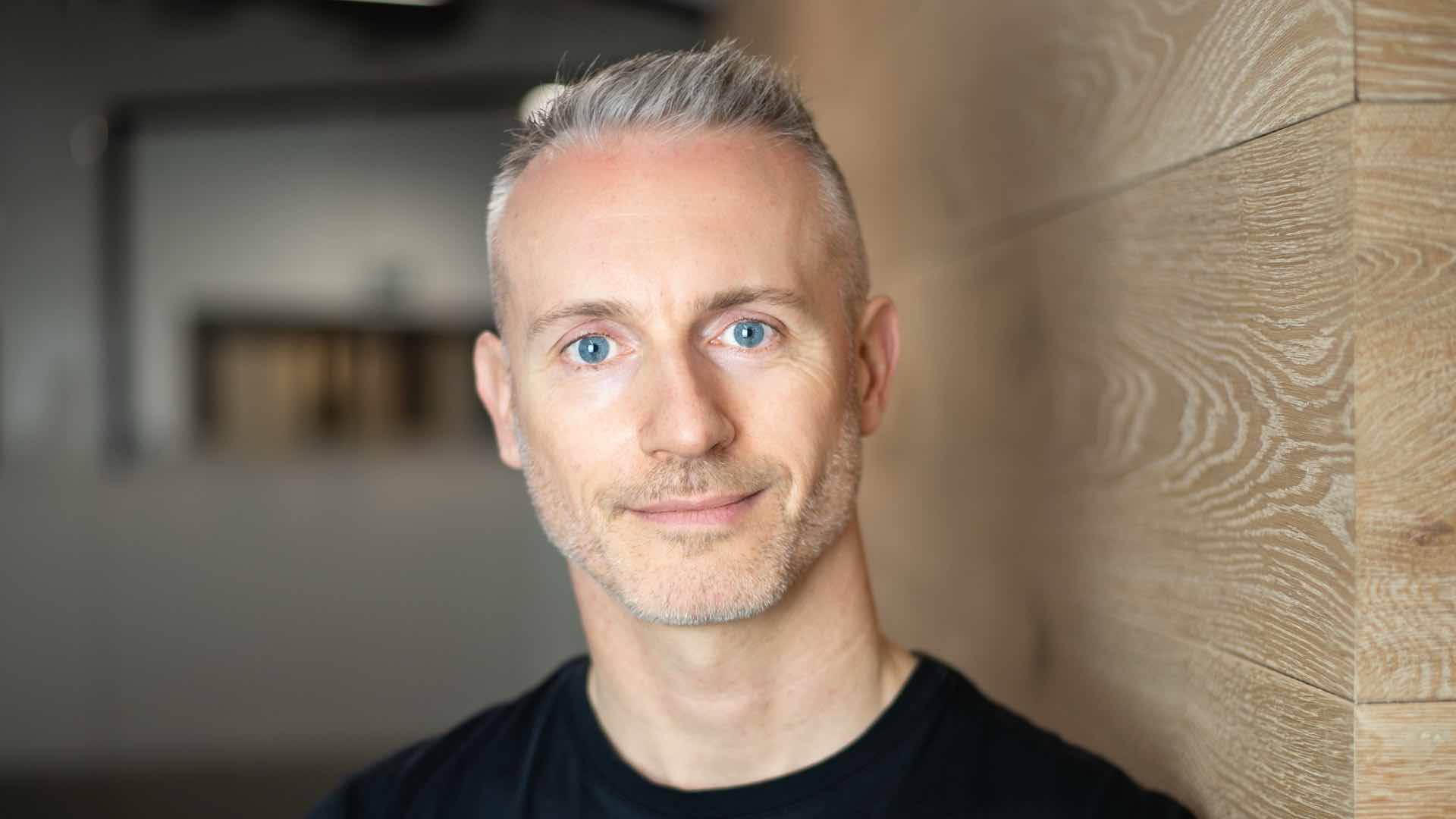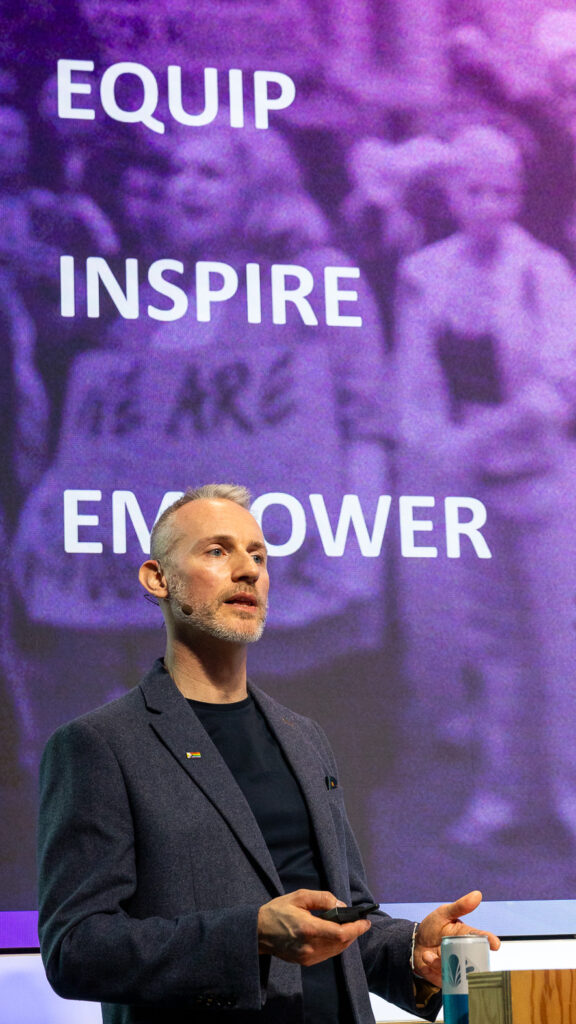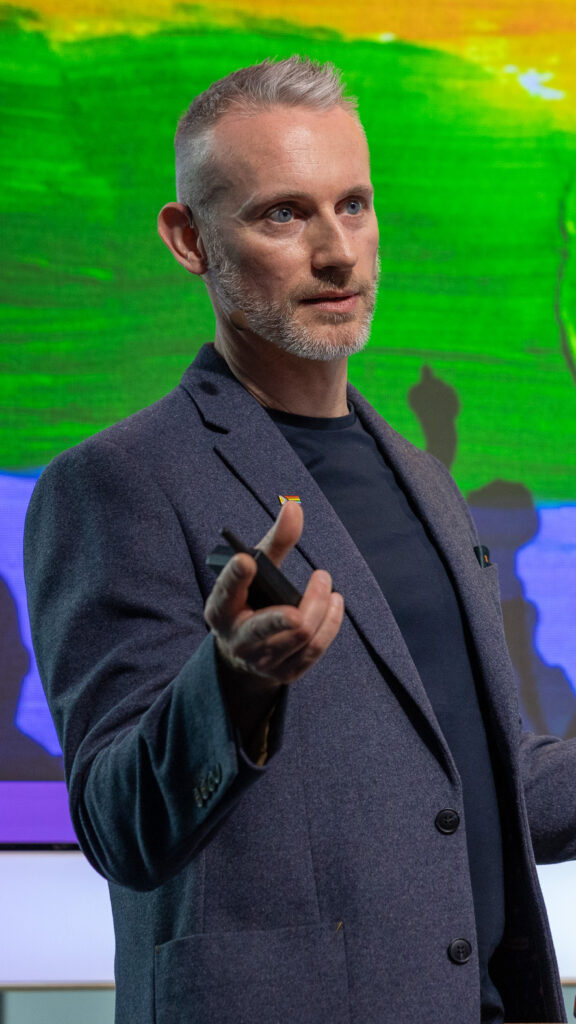Outvertising CEO Chris Dunne on the advertising industry’s flagship LGBTQIA+ event, supported by Attitude (EXCLUSIVE)
A middle finger up to those incensed by diversity in TV ads: "We’re queer people going through a very difficult period," says Dunne

Outvertising LIVE 2025 is a rallying cry for inclusion, courage and community. Landing just weeks after a Reform UK MP’s bizarre tirade against diversity in advertising, this year’s edition – held at Curzon Soho on 19 November and headline sponsored by Attitude, Channel 4, and Publicis Groupe UK – promises its most powerful line-up yet.
Opening the event will be Stream Publishing Managing Director, and Attitude and Rolling Stone UK publisher, Darren Styles OBE, delivering the keynote before a fireside chat with comedian, Attitude Comedy Award winner and M&S Food Ambassador Tom Allen. Together, they’ll explore the last decade of queer inclusion in media and advertising, and how brands can keep showing up authentically in an increasingly polarised climate.
Ahead of the event, we sat down with Chris Dunne, CEO of Outvertising and Head of Marketing at Thinkbox, to talk about his career path, the emotional toll of advocacy, and what needs to happen next for LGBTQIA+ inclusion in advertising.
How do you juggle your two roles, Head of Marketing at Thinkbox and CEO of Outvertising?
The Outvertising role is completely voluntary – everyone who powers it does so alongside their day job and other responsibilities. I think when something is driven by passion, you find a way, you find the time to dedicate to it.
I’m very fortunate to get permission from my employer. What we’d say to anyone thinking of joining is that we’re here to represent queer people in the ad industry, and we need volunteers for us to be able to function.
The way I balance it is by being strict with myself, because our mission at Outvertising – driving inclusion in the ad industry and improving queer representation in ads – is never-ending.
We’re queer people going through a very difficult period, and it would be more convenient for us to put our heads in the sand and not expose ourselves to what’s happening to parts of our community. If you decide to take on a voluntary role like this, you don’t allow yourself that comfort. We have to be mindful that it’s not only about the work you do, but also the toll it can take on you.
What’s the goal for Outvertising in 2025 and beyond?

We’ve got two main missions: to make the industry itself more inclusive, and to make representation in advertising better, more frequent, and more central.
Much of this year has been spent encouraging people to use our Advocacy Playbook, a document we created and launched at the start of the year. It distils everything we’ve learned over the past five years — a step-by-step manual on how to make your workplace more LGBTQIA+ inclusive, or how to produce more inclusive work.
But there’s also an emotional side to this: tackling the fear. There’s a fear of doing it wrong, saying the wrong thing, or not being equipped to handle backlash. That fear breeds paralysis. People aren’t confident enough to put anything on the line or push for more progressive, inclusive work, because they’ve seen so many examples of brands or well-loved institutions being attacked. Our job is to help people overcome that fear. Bringing people together at Outvertising LIVE helps achieve that.
On the advertising side, our job is to get back to the evidence. It’s easy to assume there are enough queer people in ads because a few stand out, so you might think we’ve got our fair share. But data shows that only about 3% of UK ads feature any form of queer representation. That includes, for example, Tom Allen in a People’s Postcode Lottery campaign – he’s a queer public figure fronting it and that’s brilliant, but there’s no depiction of queer narratives there, yet it’s still counted. Our job is to say: here’s our 3% and let’s unpack what that really looks like.
Who’s getting it right?

We’ve worked closely with E45 over the last year. Their trans-centred campaign won the Channel 4 Diversity in Advertising Award. This wasn’t about “doing a trans ad,” it was about taking their brand mission of making people feel comfortable in their skin to a part of society feeling least comfortable right now. They went on to fund academic research into trans skin healthcare, including literature distributed to GP surgeries, and the research has since been adopted in other countries.
The National Lottery also did something beautiful with their Pockets campaign – a love story spanning 25 years of a gay couple buying tickets together. What I loved is that it wasn’t about being gay, it was just a love story. That’s where representation has evolved from tokenism to something central, authentic, and universal.
And Virgin Atlantic’s See the World Differently campaign is another great example. It’s impossible to pin down anyone’s exact identity, and that’s the beauty of it.
People often say TV advertising is dying. What’s your take?

I’m contractually obliged to challenge that! The evidence speaks for itself – TV remains the most effective advertising medium there is, though you’ll always have naysayers who question how much attention is paid to it.
We’ve done ethnographic research in homes showing that even when people are on their phones, they’re absorbing the ads’ singing jingles, quoting lines. There’s a value exchange with TV ads that people understand: they get to watch great content for free, so the ads feel fair.
Radio and out-of-home work the same way – they’re welcomed because they’re part of the fabric of life, not an intrusion.
Any ads that stuck with you growing up?
The Gold Blend ads – my mum loved them, even though she drank Nescafé. I loved Maureen Lipman in the BT ads too… so camp. And I remember when Levi’s ads were events; songs from them would go to number one. The “Mad About the Boy” one where he’s diving into all the pools was probably a bit of a gay awakening too.
Ads get into places that other types of content can’t. You’ve got swathes of the population that would never opt into a piece of content featuring positive gay storytelling – they’ll probably switch off that bit of Emmerdale or skip the new Russell T Davies drama. They don’t want to see that in front of them. But they don’t get a choice when it comes to the ad break or the billboard they pass on the street. That’s why we believe advertising has real power to shift perspectives – it reaches people who otherwise wouldn’t see it.
Pitch us an Attitude TV ad.
We open on a beach at first light. A man, probably quite an attractive one, shakes out his towel, and a copy of Attitude falls out.
As he flips a page, the horizon wipes into a rooftop party. Another page: a gallery private viewing. Another: front row at Fashion Week. Another: a chef plating a tasting menu. Every flip reveals confident gay men living big: laughter, sweat, applause and kisses.
Voiceover: “Every page is a door.” The final flip returns to the beach at golden hour. Friends arrive, he tucks Attitude under his arm, and heads into the day. Super: “Attitude – open to more.”
Outvertising LIVE 2025 takes place on 19 November at Curzon Soho, London. The event – supported by Attitude – will feature keynote speakers Darren Styles OBE and Tom Allen alongside leaders from brands including Just Eat, System1 and Havas UK.
